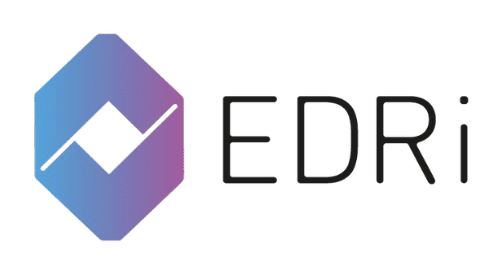“Stop the Digital Omnibus,” Say 127 Civil Society Organisations
People vs Big Tech, EDRi and other 125 civil society organisations are sounding the alarm: leaked documents show that the European Commission’s upcoming Digital Omnibus, set to be unveiled on 19 November 2025, could reopen the GDPR, ePrivacy Directive and AI Act, which are core pillars of the EU’s digital rights framework. Despite the Commission’s assurances, the plans to amend and hollow out key safeguards would amount to the biggest rollback of digital fundamental rights in EU history, gutting hard-won protections for people, democracy and the planet in favour of Big Tech’s deregulation agenda.
This sweeping overhaul, marketed as ‘simplification’, threatens to chainsaw through the rules that keep power in check and citizens safe online. We urge the Commission to halt this assault immediately and protect the integrity of Europe’s digital rulebook before it’s too late.
Joint civil society letter: The EU must uphold hard-won protections for digital human rights
We 127 civil society organisations, trade unions and defenders of the public interest write to emphasise our serious alarm at the forthcoming EU Digital Omnibus proposals, part of a wide deregulation agenda.
What is being presented as a “technical streamlining” of EU digital laws is, in reality, an attempt to covertly dismantle Europe's strongest protections against digital threats. These are the protections that keep everyone’s data safe, governments accountable, protect people from having artificial intelligence (AI) systems decide their life opportunities, and ultimately keep our
societies free from unchecked surveillance.
Unless the European Commission changes course, this would be the biggest rollback of digital fundamental rights in EU history. It is being done under the radar, using rushed and opaque processes designed to avoid democratic oversight.
This worrying approach has been seen extensively across existing Omnibus proposals, with democratic safeguards ignored. As a result, supposedly minimal changes under the guise of “simplification” have already jeopardised Europe’s core social and environmental protections. Together, these changes risk worsening working conditions, allowing dangerous chemicals into
cosmetics, and polluting the air and water – making people even more exposed to harm.
In the upcoming Digital Omnibus, the Commission will reportedly weaken the only clear rule that stops companies and governments from constantly tracking what people do on their devices, part of the ePrivacy framework. This will make it a lot easier for those in power to control people’s phones, cars or smart homes, while also revealing sensitive information about where
people go, and with whom.
This matters more than ever: a new investigation reveals that commercially-traded location data has been used to spy on EU officials, as well as people going about their daily lives. This included revealing their home addresses, as well as visits to healthcare clinics and places of worship. Weakening these protections now would legitimise those abuses.
Europe’s recently-adopted AI rules are also at risk of being undermined, with the Omnibus set to remove some of the guardrails designed to ensure that AI is developed safely and without discrimination, as well as delaying key elements like penalties for selling dangerous AI systems.
Currently, anyone developing AI tools which could have an impact on important decisions (like whether people can access their benefits) would need to register in a public database. Yet with the proposed changes, those providing AI tools could unilaterally and secretly exempt themselves from all obligations – and neither the public nor authorities would know.
Even the EU’s gold-standard data protection law, one of Europe’s proudest achievements, is being reopened and hollowed out – with changes set to allow companies to mark their own homework. This would irreversibly alter one of the few laws that rightly gives all people – including workers, children and undocumented people – control over their sensitive information.
Whilst stronger enforcement is still needed, the GDPR is one of the few mechanisms that gives members of the public mechanisms to challenge powerful companies or authorities when they overstep – but deregulation is giving corporate actors more power than ever.
The Omnibus would also make it easier for tech companies to train resource-intensive AI systems at the expense of people and, ultimately, the planet. These systems ingest vast amounts of personal data and consume unsustainable amounts of natural resources such as energy and water – all without the benefits of this technology being clearly evidenced.
The EU’s tech policy framework is the best defence we have against digital exploitation and surveillance by both domestic and foreign actors. If the EU truly aims to ease compliance with these laws, they should better support companies and authorities with the guidance and tools to keep people safe in the digital world – not dismantle the frameworks that provide legal clarity for
businesses.
By recasting vital laws like the GDPR, ePrivacy, AI Act, DSA, DMA, Open Internet Regulation (DNA), Corporate Sustainability Due Diligence Directive and other crucial laws as “red tape”, the EU is giving in to powerful corporate and state actors who oppose the principles of a fair, safe and democratic digital landscape and who want to lower the bar of EU laws for their own benefit.
It is not too late for the European Commission to change course to defend, not dismantle, the laws that protect us all.
We therefore urge the European Commission to:
- Immediately halt any attempts to reopen the GDPR, ePrivacy framework, AI Act or other core digital rights protections;
- Reaffirm the EU's commitment to rights-based digital governance, including strong enforcement of existing protections; and
- Uphold institutional accountability, enable meaningful civil society and impacted community engagement, and preserve the integrity of the EU’s democratic process. It is not too late for the European Commission to change course to defend, not dismantle, the laws that protect us all.
List of signatories:
- 5Rights Foundation
- Access Now
- Ada Lovelace Institute
- Adéquations
- AI Accountability Lab (AIAL), Trinity College
- AI Forensics
- AK EUROPA
- Algorights
- AlgorithmWatch
- AlgorithmWatch CH
- Alternatif Bilisim
- Amnesty International
- ARTICLE 19
- Asocia ia pentru Tehnologie i Internetț ș
- Aspiration
- Associació Pangea - Coordinadora
Comunicació per a la Cooperació - Austrian Trade Union Federation /
Österreichischer Gewerkschaftsbund (ÖGB) - Avaaz Foundation
- Balanced Economy Project
- Berufsverband der
Datenschutzbeauftragten Deutschlands
BvD) e.V. - Bits of Freedom
- CEE Digital Democracy Watch
- Center for Countering Digital Hate (CCDH)
- Centre for Civil Initiatives Poreč
- Centre for Democracy and Technology
Europe - Centre for Peace Studies
- CESI
- Chaos Computer Club
- Citizens Network Watchdog Poland
- Civil Liberties Union for Europe
- Corporate Europe Observatory (CEO)
- D64 – Center for Digital Progress
- Danes je nov dan, Inštitut za druga vprašanja
- Data for Good
- Defend Democracy
- Deutsche Vereinigung für Datenschutz e.V.
(DVD) - Die Armutskonferenz.
- Digital Action
- Digital Society, Switzerland
- Digitalcourage e.V.
- Digitale Gesellschaft
- Digitalfems
- Državljan D / Citizen D
- Ecologistas en Acción
- Ekō
- Electronic Frontier Norway (EFN)
- epicenter.works - for digital rights
- EU DisinfoLab
- European Center for Not-for-Profit Law
(ECNL) - European Civic Forum (ECF)
- European Coalition for Corporate Justice
- European Digital Rights (EDRi)
- European Disability Forum (EDF)
- European Environmental Bureau (EEB)
- European Network Against Racism (ENAR)
- European Public Service Union (EPSU)
- European Sex Workers Alliance
- Federación de Consumidores y Usuarios
CECU - Féministes contre le cyberharcèlement
- Forum Diseguaglianze e Diversità (Forum DD)
Italy - Inequality and Diversity Forum - Forum for Freedom in Education
- Forum InformatikerInnen für Frieden und
gesellschaftliche Verantwortung (FIfF) - Foundation for Information Policy Research
(FIPR) - Friends of the Earth Ireland
- GLOBAL 2000
- Global Witness
- Gong
- The Good Lobby Italia
- Greek Forum of Migrants
- Groupe International D'Etudes
Transdisciplinaires - HateAid
- Hermes Center
- Homo Digitalis
- Hope and Courage Collective
- IA Ciudadana
- Information Legal Centre
- Institut de Drets Humans de Catalunya
- Irídia – Human Rights Defence Centre
- Irish Council for Civil Liberties
- ISKORAK
- IT-Pol Denmark
- IUWMST Montenegro
- K-Monitor Association
- Lafede - justícia global
- Lie Detectors
- Life Quality Improvement Organisation
FLIGHT - Ligue des droits humains (Belgium)
- LobbyControl
- Mouvement Ecologique, FoE Luxembourg
- Mreza mladih Hrvatske / Croatian Youth
Network - Nasc - Refugee and Migrant Rights Centre
- Nederlands Juristen Comité voor de
Mensenrechten (NJCM, Dutch section of the
International Commission of Jurists) - Norwegian Consumer Council
- noyb, European Center for Digital Rights
- ÖBV - Via Campesina Austria
- Open Markets Institute
- Osservatorio Nessuno OdV
- Palombar - Nature and Rural Heritage
Conservation - Panoptykon Foundation
- People vs Big Tech
- Period Think Tank
- Politiscope
- Privacy First
- Privacy Network
- Privacy International
- Psst.org
- PublicSpaces
- SETEM Catalunya
- Sherpa
- SOMO
- Stichting Algorithm Audit
- StraLi - Strategic Litigations
- Technopolice BXL
- The Equality and Anti-Discrimination Ombud
(Norway) - Transparency International EU
- UGS NEZAVISNOST
- UNBLACK THE BOX
- Verband Freier Rundfunk Österreich
- Vrijschrift.org
- Waag Futurelab
- Weaving Liberation
- WHAT TO FIX
- Wikimedia Deutschland e.V.
- WITNESS
- Zaklada Slagalica (Community Foundation
Slagalica) - Zašto Ne
- Zentrum für Digitalrechte und Demokratie
See also on EDRI.org





